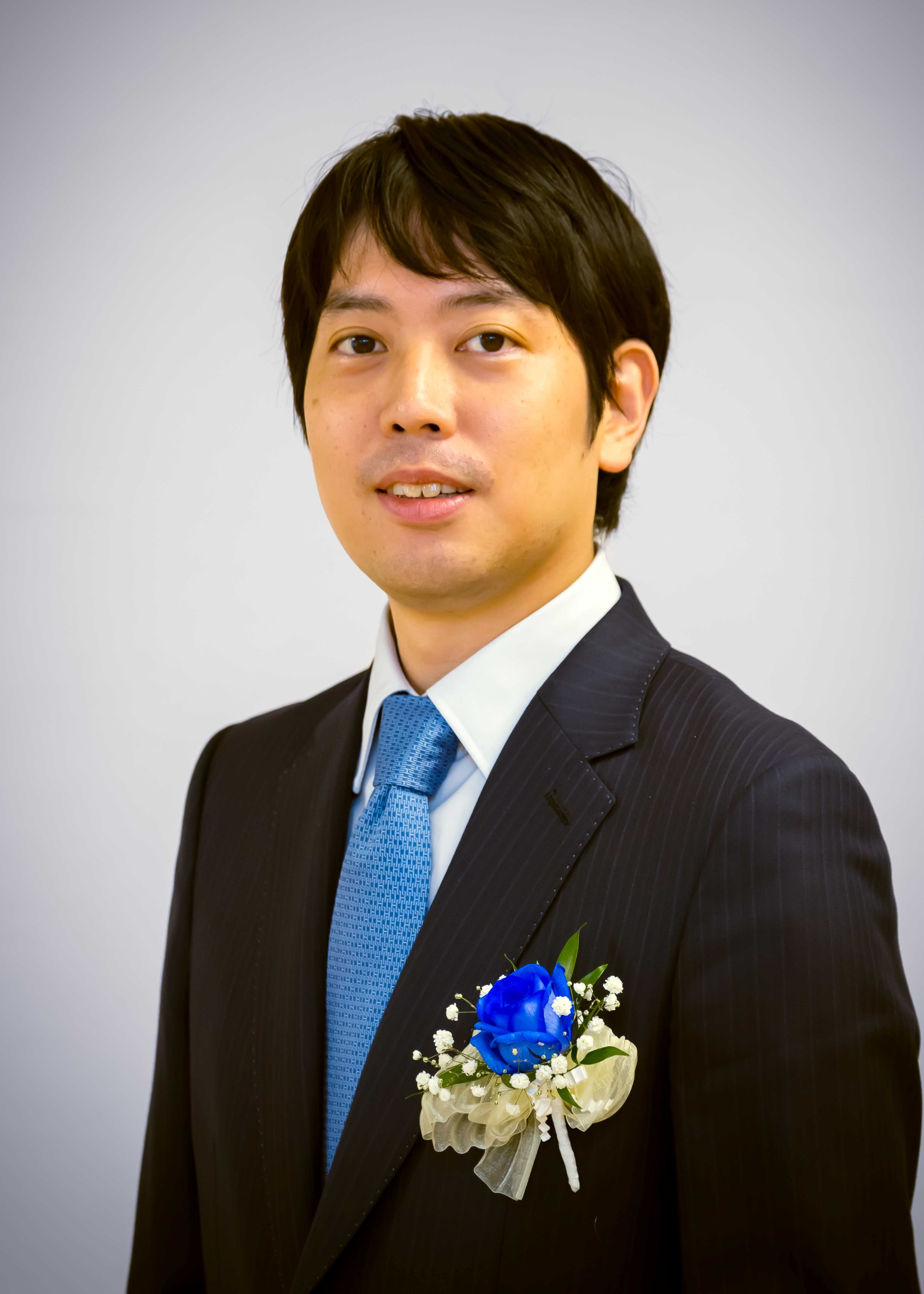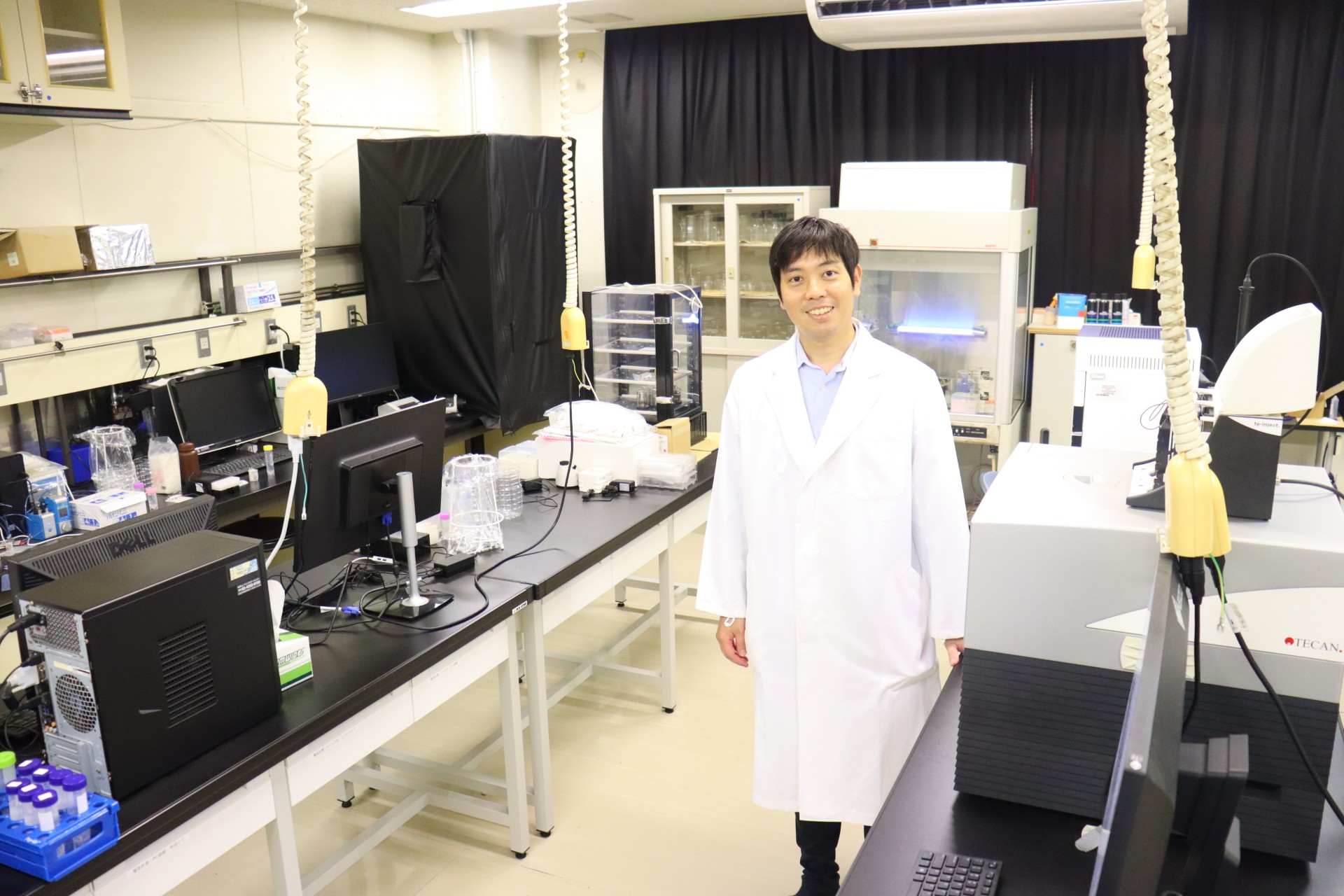Development of a protein analysis technique using latent luciferase activity

Dr. Ryo Nishihara
Senior Researcher
Health and Medical Research Institute, National Institute of Advanced Industrial Science and Technology (AIST)
*The organization and the title are those when awarded
Research summary
Proteins are important biomolecules that can determine the presence or absence of disease or infection by measuring changes in their quantity or structure, and many measurement methods have been developed. However, conventional methods often required complicated operations, advanced techniques, and lengthy measurement times. Dr. Nishihara discovered that the spike protein* derived from the novel coronavirus causes the Cypridina-derived luminescent substance "luciferin*” to glow. Normally, luciferin emits light through the catalytic action of an enzyme called luciferase, but the spike protein acts as a substitute for luciferase to promote luminescence. Applying this phenomenon, he has developed a simple and rapid protein analysis technique that can detect the amount of spike protein in human saliva in one minute, simply by mixing Cypridina luciferin with human saliva. Furthermore, he demonstrated that by artificially modifying the chemical structure of luciferin, it can be used to detect not only virus-derived proteins but also human-derived proteins, and to evaluate the quality of antibody drugs. This new, versatile technology for protein analysis is expected to have a broad range of applications in the fields of medicine and drug discovery.


Introduction to Research





